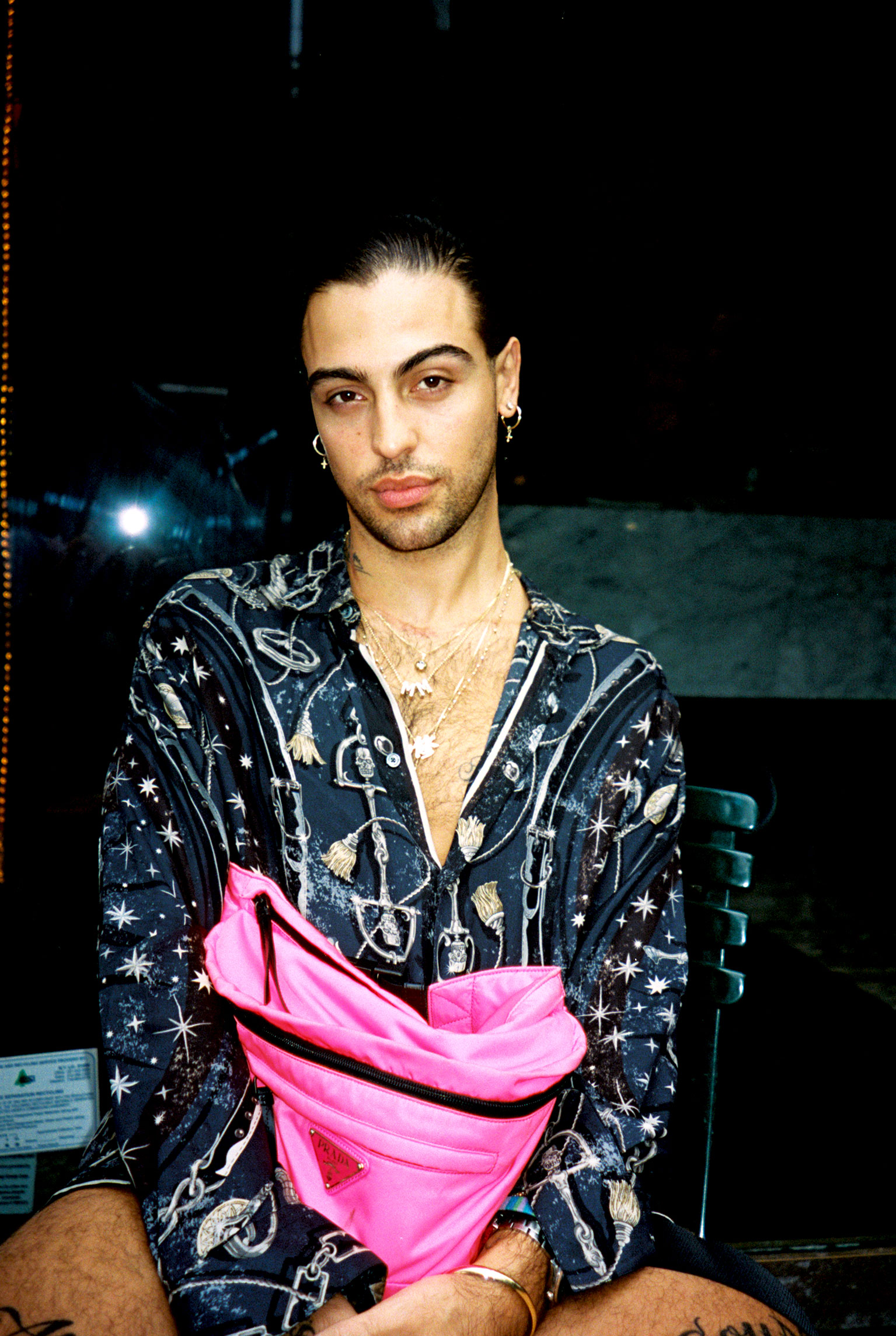For Mazur, the women in his life provide the deepest source of inspiration. He was raised by three: his grandmother, mother, and aunt. Women were everywhere growing up – on telenovelas, in magazines, or on the radio via Thalía or Paulina Rubio, whom he considers style icons.
“My mom, tía and abuela are my rocks – my trinity,” Mazur said. “Everything they’ve done and sacrificed for me has influenced what I do now. That’s what I try to exemplify with the women I dress. I want to express the empowerment I saw growing up from the amazing Latin women in my life.”
His Latinidad is infused into the way he styles his women – think ‘high-low’ flair. “These are Adidas socks, but the top is Hermes,” he said. “A $10 dress with a $750 sandal – that’s how I think.”

Though Carlos Nazario may come to mind, Mazur was challenged to name another prominent Latin stylist. That said, he’s hopeful, recognizing that “there are still boundaries that have to be broken, obviously, but I believe Latin people are going to have their moment, and I think it’ll be soon.”
Current immigration policies have brought Latinxs to the front pages of newspapers and magazines. Mazur believes it’s the perfect time to control the narrative and speak on what we have to speak on.
We started talking about Luis Fonsi’s song Despacito, a cultural and unprecedented phenomenon that disrupted the music industry with its bilingual remix featuring Justin Bieber.
“The fact that that song had the impact that it had, without us even knowing,” he recalled. “When it came on, we’d be like, ‘that song again?’ We hate that song, but it was happening right under our noses…Americans were consuming the song. Not just consuming either, but eating it up! The fact that my 90-year-old grandma knows that song in a New Jersey farm town says something.”
When asked to perform the song live, Bieber couldn’t sing his one verse in Spanish, and mocked the situation by instead singing: “I don’t know the words so I’ll sing dorito.”
“Sometimes it’s about putting your ego aside and thinking about the bigger picture,” Mazur added, believing the song was still a win for Latinxs. “Everybody takes things a lot more personally than they should. It’s not about you sometimes, it’s about the community.”






